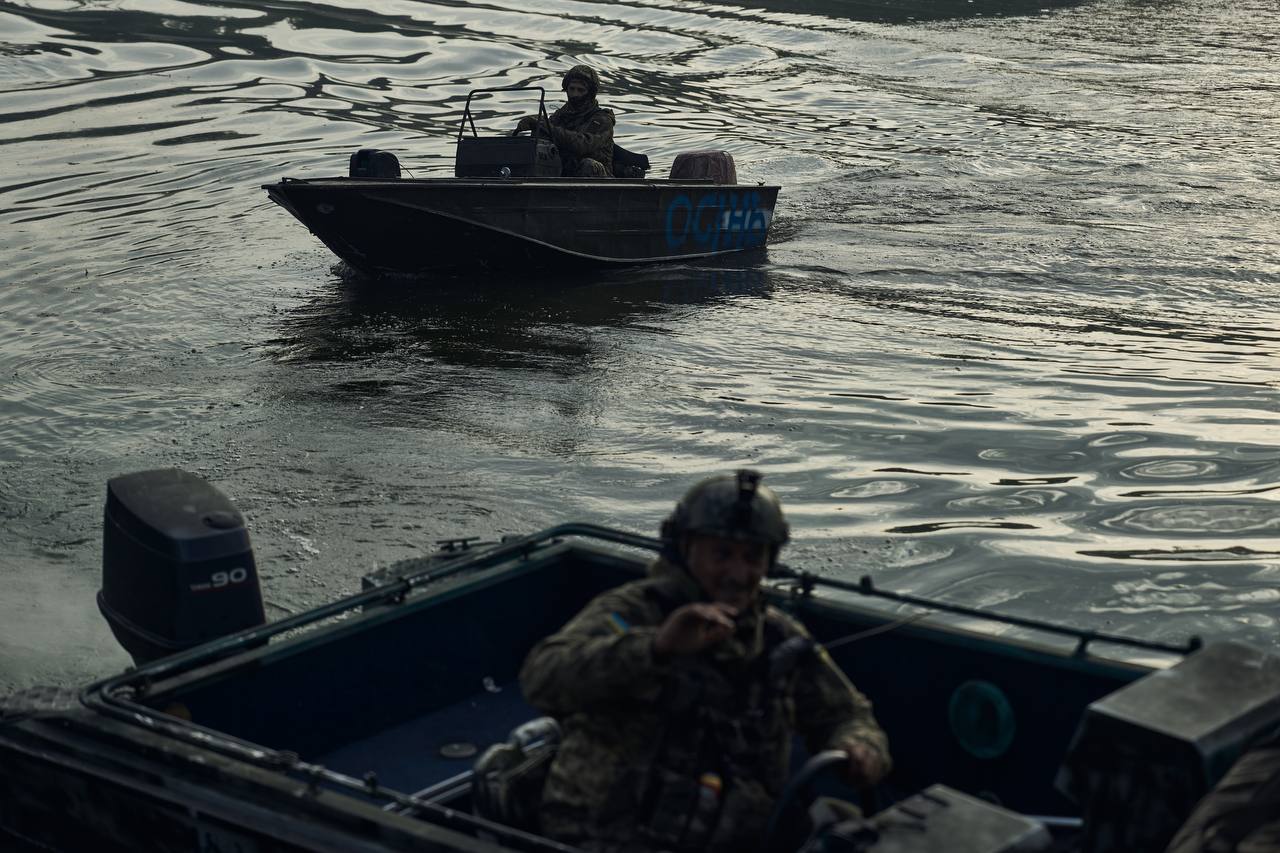Russian troops intensify activity near Krynky, Ukrainian forces withdraw to new positions, military says

Russian troops have intensified their activity near the village of Krynky in Kherson Oblast, prompting Ukrainian forces to seek new positions, Dmytro Lykhovii, a spokesperson for Ukraine's Tavria group of forces, said on Aug. 15.
The small village of Krynky is a key settlement in the heavily contested Dnipro bridgehead in Russian-occupied Kherson Oblast. Before the start of the full-scale war, fewer than 1,000 people lived there.
"Seven (Russian) attacks were repelled at a bridgehead on the left bank of the Dnipro River in Kherson Oblast, north of the village of Krynky, where our units moved to new positions. The enemy has become more active there than last week," Lykhovii said on national television.
Due to the swampy terrain, it is challenging to build fortifications, set up observation posts, and firing positions in the area, according to the spokesperson.
If Russian troops use artillery and drop incendiary munitions from drones in hot weather, fires break out. This complicates the holding of positions, and Ukrainian forces have to relocate, Lykhovii added.
There are no drastic changes in the tactics of the Russian troops or its personnel quantity. No significant decrease in the number of Russian soldiers has been observed in this sector of the front line, the spokesperson said.
"At the same time, there are no signs of the formation of assault forces for the Russian offensive. Positional battles continue in Kherson and Zaporizhzhia oblasts, where Ukraine's Tavria Group is located," he added.
Ukrainian marines first crossed the river and gained a foothold on the Russian-occupied side in October last year.
Over the next two months, they secured a thin, long bridgehead along the coast. Marines achieved the most success in Krynky in December, advancing around roughly 2.5 kilometers from the river coast.
Fighting for the village has been fierce for months. In February, Ukraine said Russian troops were conducting "human wave" assaults without armored vehicles in an attempt to recapture it.
The Defense Forces of Southern Ukraine said in mid-July that Ukrainian troops are still fighting in Krynky, but their positions are "completely destroyed."













